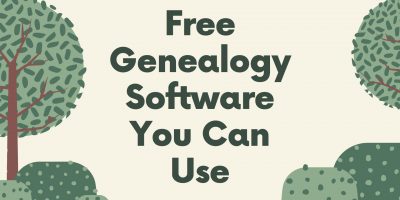
What are the Functions of HRIS?
Explore how HRIS streamlines HR operations while at the same time improving employee engagement, compliance, and organizational efficiency.

The behavioral patterns of B2B users are constantly evolving. In recent years, the purchase habits of the B2B buying community have progressively changed:
However, these actions are mostly conveyed individually and online, and as a result, almost 75% of B2B users prefer online purchases.
This leaves little or no room for marketing and sales teams to interact with B2B buyers before they make a purchase. Therefore, traditional marketing and sales tactics are rendered ineffective.
Consequently, marketers are facing various challenges that affect the way they do business, as they must adapt and embrace intent data marketing tactics and customer-centered marketing strategies to reveal B2B buyers’ intent and find ways to leverage the obtained intent data for intent-based marketing.

Savvy marketers rely on data to make informed marketing decisions and find ways to leverage intent data for intent-based marketing strategies. At a time when 61% of B2B transactions start online, intent data marketing is critical.
As the intent data definition summarizes, buyer intent data is a marketing intelligence tool aggregating prospects’ behavioral signals, thus determining their place in the marketing funnel and, ultimately, their intent.
By understanding prospects’ intent, marketers can utilize intent data to find qualified leads, improve and personalize marketing campaigns, generate relevant content, and more. Buyer intent data supports the customer-centered marketing approach.
Purchase intent data gives marketers a clear picture of what their prospects are interested in, what products and solutions they are searching for, and the areas they struggle in. Also, intent data allows marketing professionals to observe which stage of the buyer’s journey B2B users are at and whether they’re ready to make a purchase or not.
Marketing teams can then provide B2B users with relevant and appropriate solutions and interact with them accurately and timely.
Marketing teams can use intent data marketing tactics to boost the effectiveness of their marketing efforts. There are numerous ways marketers can utilize B2B intent data in their favor while creating an advantage over their competitors.
More than 70% of B2B prospects start their inquiry with generic research. Additionally, almost 60% of them have already decided before contacting a salesperson, which creates an enormous blind spot for marketers.
By leveraging intent data marketing to overcome this common obstacle, marketing professionals can gain a competitive advantage in the industry.
Intent data can produce more successful ABM campaigns. After gathering insights on what certain accounts are researching, marketing teams can target them with personalized intent-based marketing campaigns.
Instead of creating a generic campaign for all prospects and leads, marketers can now create campaigns tailored to buyers’ interests. Consequently, by using intent data, marketers can convey a cost-efficient ABM marketing campaign.
For years, marketers have used email marketing as a medium to connect with prospects and improve performance. Moreover, 59% of them say email marketing generates the most ROI for their company. Now, marketing teams can supercharge their strategies by combining email marketing with intent data insights.
This results in tailored email campaigns to the right audience at the right time, increased conversion rates, and a personalized approach to connecting with prospects.

Statistics show that 70% of marketers are diligently investing in content marketing. Moreover, approximately 40% agree that content is a significant part of their overall marketing strategy.
Intent data can help marketing teams optimize their content strategies in numerous ways. Based on prospects’ interests, they can create relevant content for each stage of the buyer’s journey.
Additionally, intent data marketing can help professionals in the field choose relevant keywords, streamline their SEO efforts, and ultimately create a better understanding and more profound relationships with their prospects.
Generating quality leads remains a top priority for marketers. With the help of intent data, they can not only generate new leads but also evaluate them. By understanding where prospects are and what they are searching for, marketers assign value to the prospects’ actions and accurately predict their next steps.
This knowledge enables them to segment and prioritize accounts further into the marketing funnel.
Statistics show that 90% of consumers prefer personally relevant messages. Thus, with the help of the unique dataset that intent data provides, marketers can initiate targeted advertising to deliver personalized messages and product offerings to their target audience.
Furthermore, they can create targeted account lists and provide sales teams with valuable leads that show an active interest. Additionally, sales professionals can reach out to the targeted intent-based leads at the best time, ensuring higher conversion rates and improved customer relationships.
Utilizing intent data for marketing strategies can be a powerful tool for marketers. Intent data marketing enables them to obtain a broader knowledge of prospects’ interests and pain points and creates possibilities for personalization and targeted strategies.
Consequently, intent-based marketing provides insights that can generate more leads, create better relationships with prospects, increase ROI and sales rates, and gain an advantage over their competitors.
SEO Manager at Shortlister
Browse our curated list of vendors to find the best solution for your needs.
Subscribe to our newsletter for the latest trends, expert tips, and workplace insights!

Explore how HRIS streamlines HR operations while at the same time improving employee engagement, compliance, and organizational efficiency.

Explore the seamless integration of physical access control with HR tools in our informative guide. Learn how to optimize security measures and create effective desk management systems for a more efficient and secure workplace environment.

Discover how marketers leverage intent data to effectively target and engage potential customers for improved conversion rates and ROI.

Explore free genealogy software solutions and their helpful features to discover more about your family roots and ethnicity.
Used by most of the top employee benefits consultants in the US, Shortlister is where you can find, research and select HR and benefits vendors for your clients.
Shortlister helps you reach your ideal prospects. Claim your free account to control your message and receive employer, consultant and health plan leads.